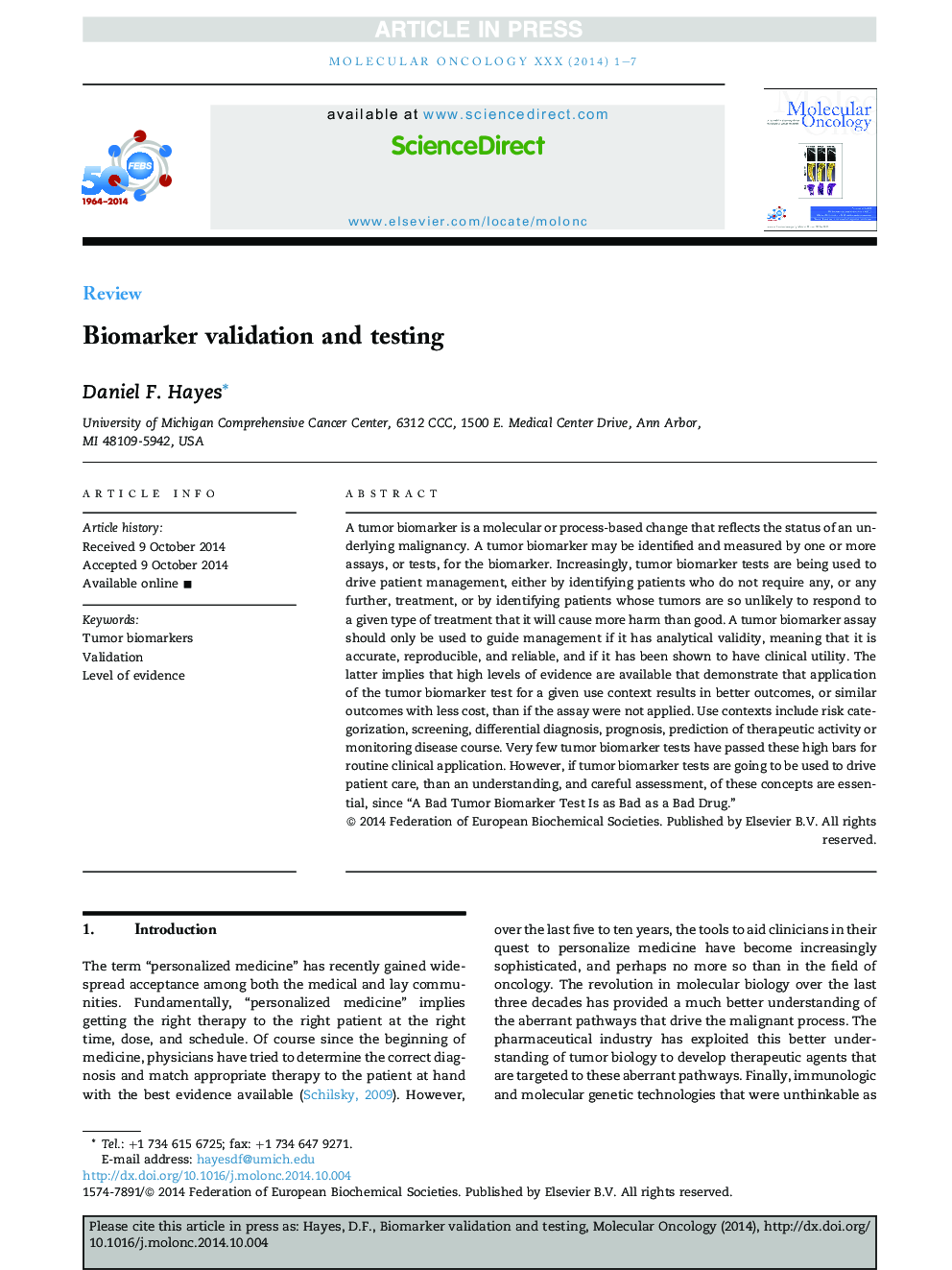| Article ID | Journal | Published Year | Pages | File Type |
|---|---|---|---|---|
| 10914730 | Molecular Oncology | 2015 | 7 Pages |
Abstract
A tumor biomarker is a molecular or process-based change that reflects the status of an underlying malignancy. A tumor biomarker may be identified and measured by one or more assays, or tests, for the biomarker. Increasingly, tumor biomarker tests are being used to drive patient management, either by identifying patients who do not require any, or any further, treatment, or by identifying patients whose tumors are so unlikely to respond to a given type of treatment that it will cause more harm than good. A tumor biomarker assay should only be used to guide management if it has analytical validity, meaning that it is accurate, reproducible, and reliable, and if it has been shown to have clinical utility. The latter implies that high levels of evidence are available that demonstrate that application of the tumor biomarker test for a given use context results in better outcomes, or similar outcomes with less cost, than if the assay were not applied. Use contexts include risk categorization, screening, differential diagnosis, prognosis, prediction of therapeutic activity or monitoring disease course. Very few tumor biomarker tests have passed these high bars for routine clinical application. However, if tumor biomarker tests are going to be used to drive patient care, than an understanding, and careful assessment, of these concepts are essential, since “A Bad Tumor Biomarker Test Is as Bad as a Bad Drug.”
Related Topics
Life Sciences
Biochemistry, Genetics and Molecular Biology
Cancer Research
Authors
Daniel F. Hayes,
